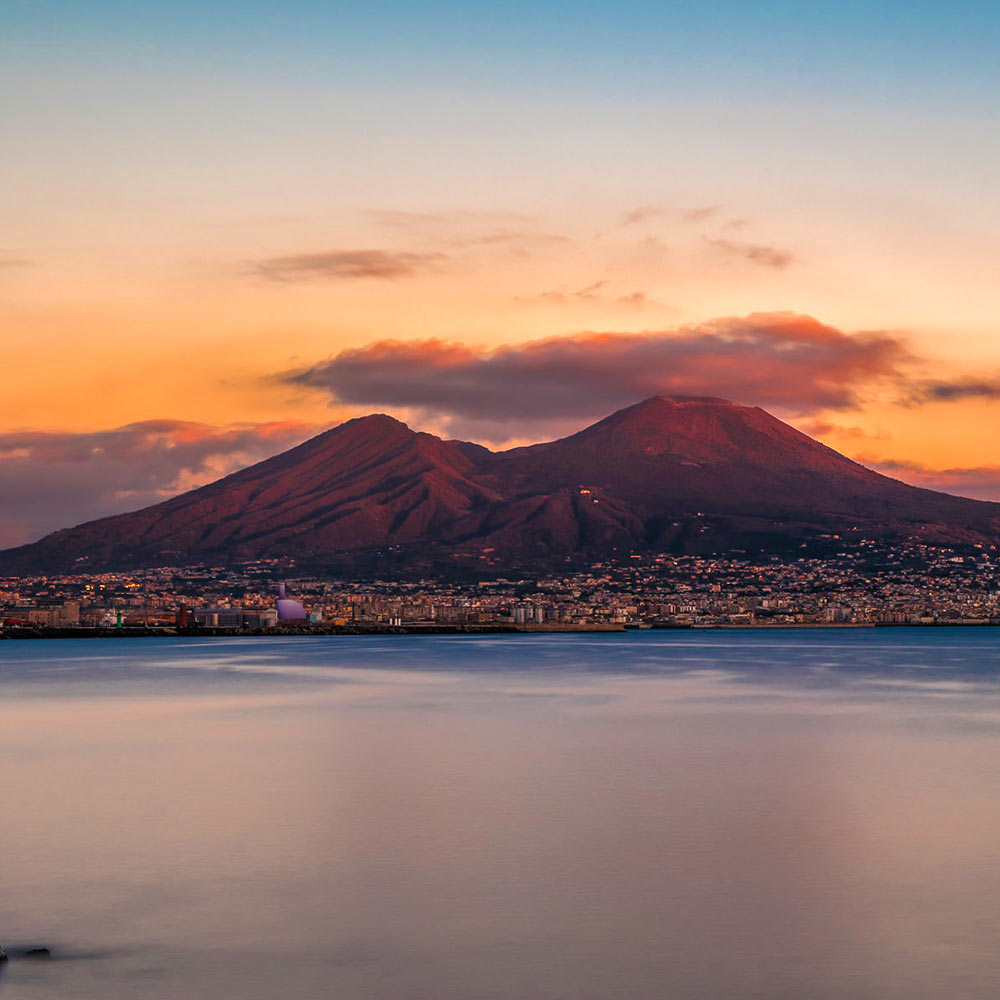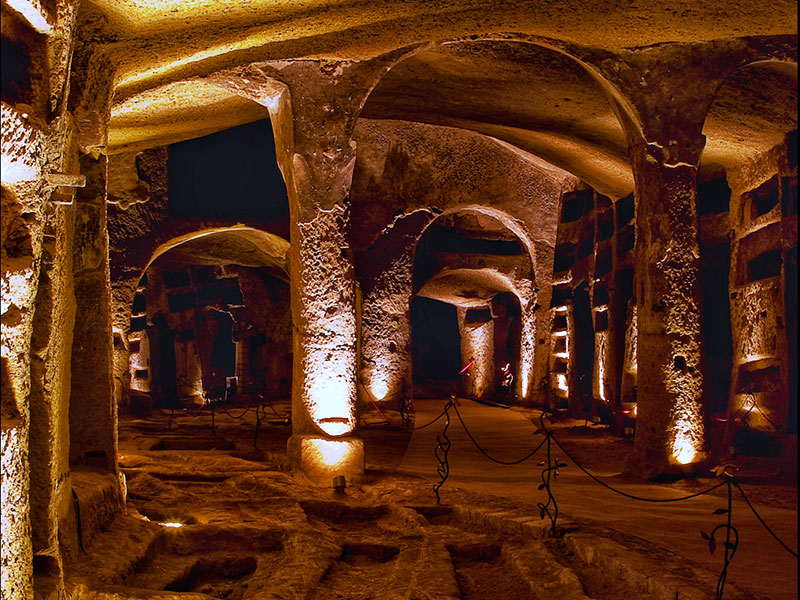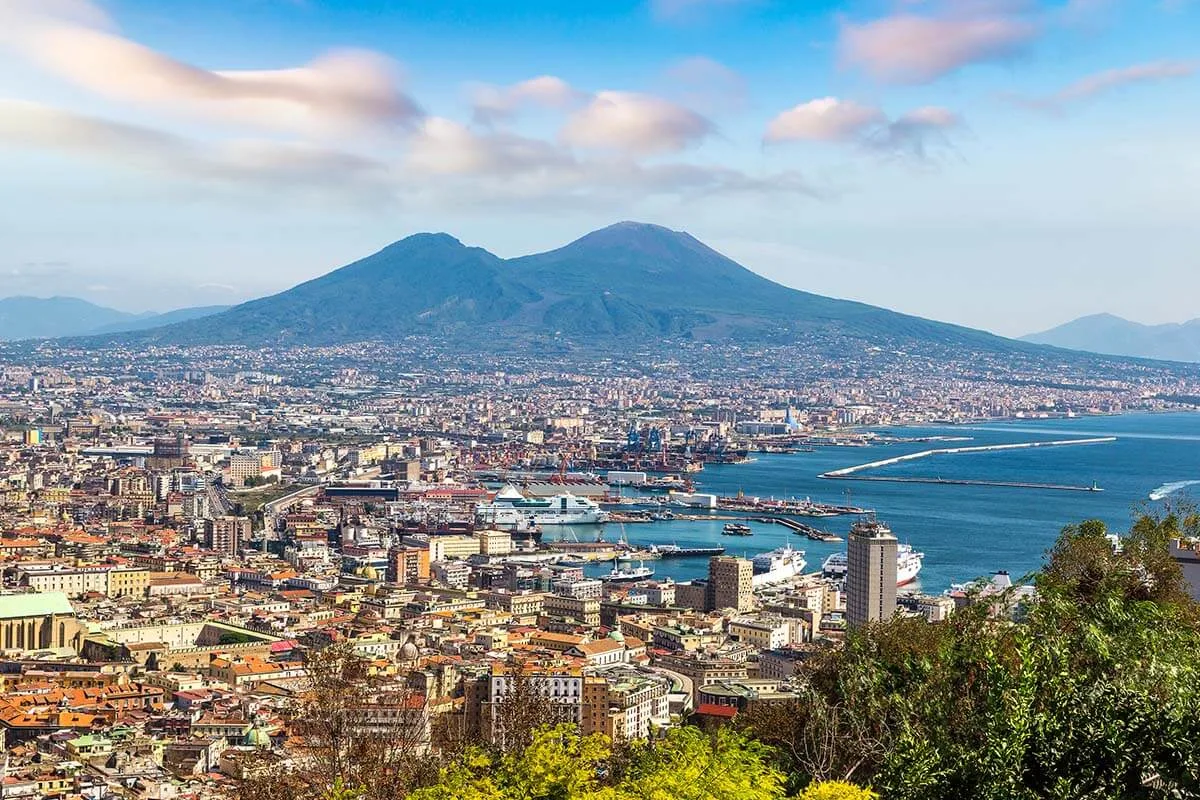History - Art and Culture
Greco-Roman Naples, founded by the Cumaeans in the 8th century BC, became one of the most important cities of Magna Graecia, before being conquered by the Romans in 326 BC. At the dawn of the Middle Ages it was conquered by the Byzantines and thanks to local nobility was able to transform itself into the Duchy of Naples, an independent state that ruled for more than five centuries, until the invasion of the Normans in 1139. In 1266, following the victory of Charles I of Anjou over Manfred of Sweden, it became Angevin and in 1282 was elected capital of the Kingdom of Naples, becoming one of the most influential cultural centres in Europe. A status it maintained during its Aragonese period and increased with the arrival of the Borboni (Bourbons) in 1734, who restored its independence, making it a great European city, culturally evolved and highly refined. Napoleon also arrived in Naples and in 1799 the Parthenopean Republic was established for a few months. With the Restoration, it became the capital of the Kingdom of the Two Sicilies until the Unification of Italy. Throughout the 1900s Naples suffered heavily during the two world wars, but was also the birthplace of the first President of the Italian Republic, Enrico De Nicola.
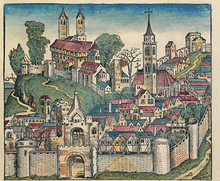
Food
- Pizza Napoletana
- Panzerotti
- Cuoppo
- Sausage and friarielli
- Struffoli: a typical Christmas cake.
- Pastiera: a typical Easter cake, with its ricotta filling.
- Baba: baked in the oven and then dipped in rum.
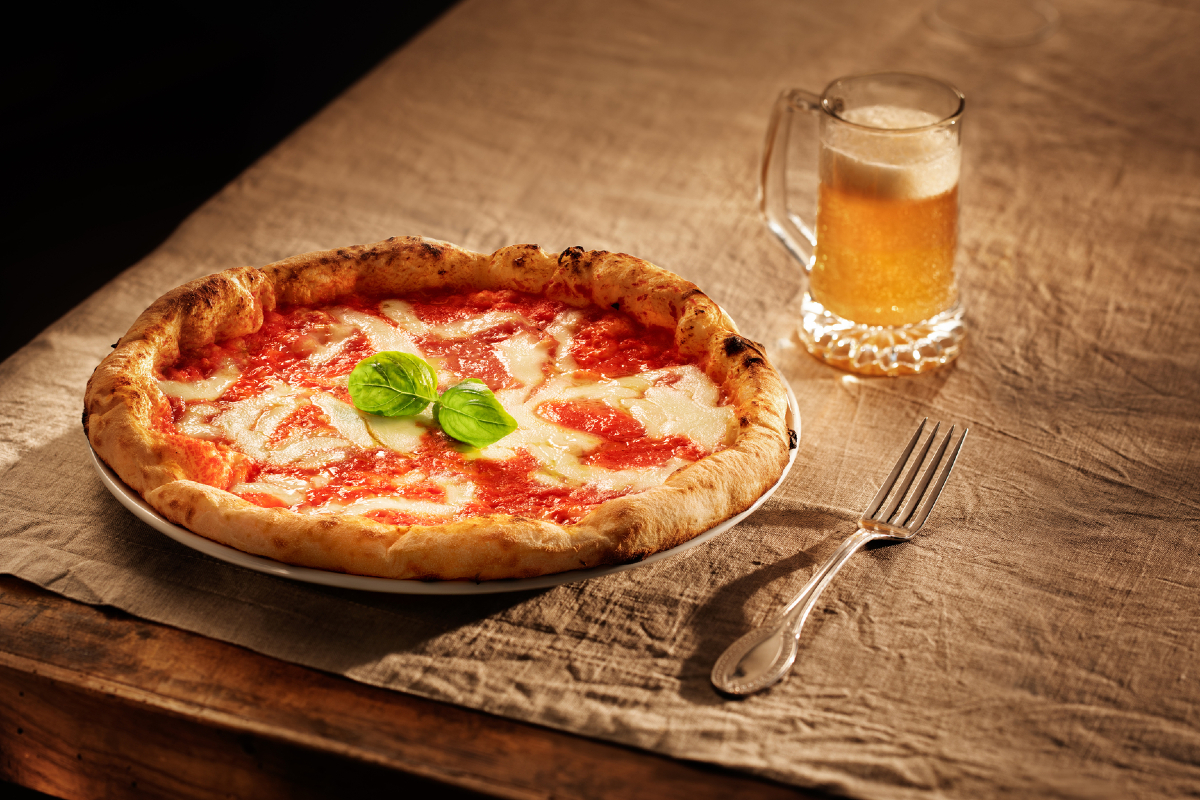
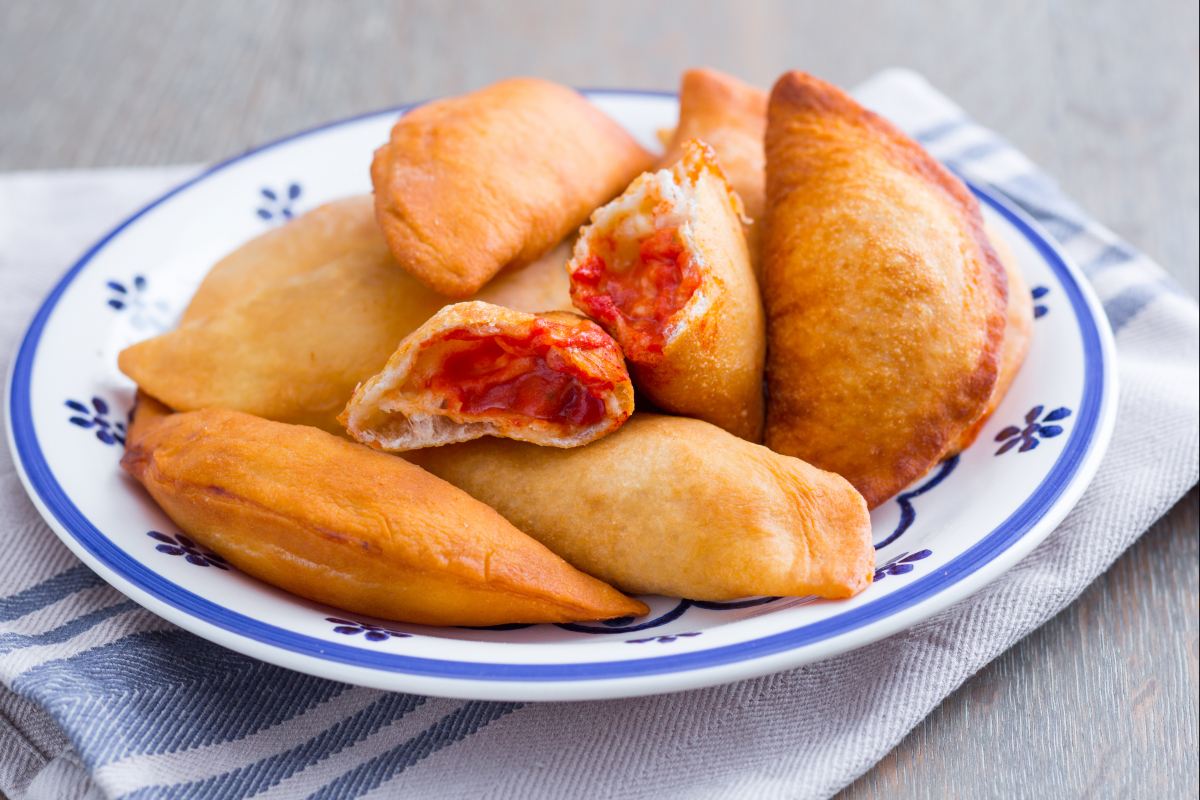
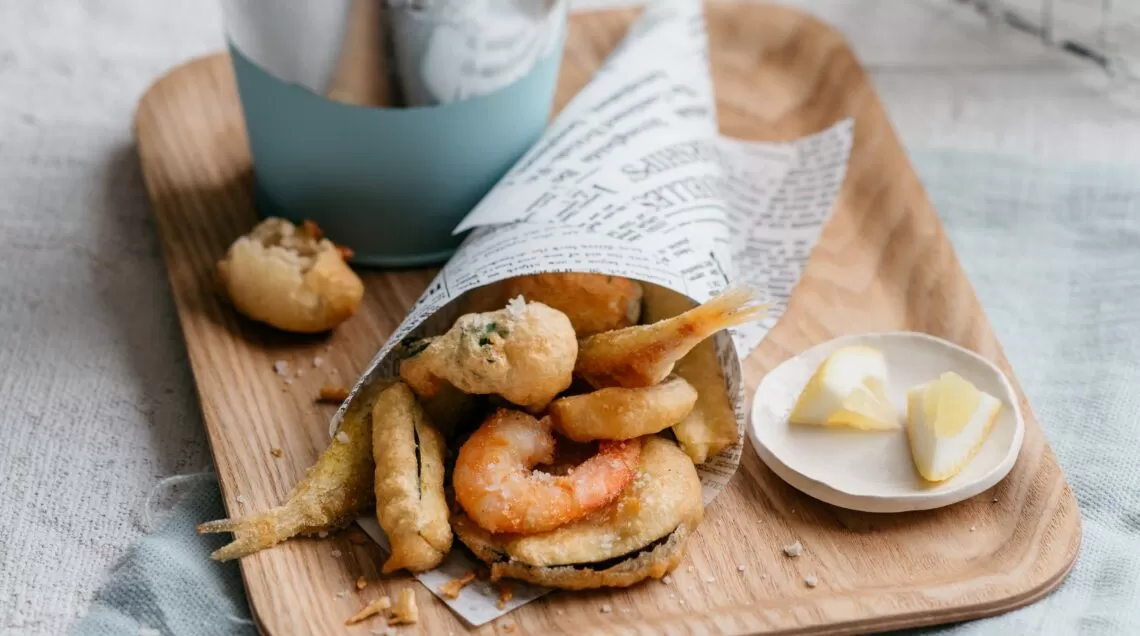

Something to do - Sport and Fun
Naples is a passionate and lively city, so it takes no time at all to engage its visitors. A performance at the San Carlo Theatre, one of the most prestigious opera houses in the world, is a temptation one should not resist. To fully experience the city you need to get lost in its streets, so make time for a nice walk in Spaccanapoli, perhaps followed by some shopping in Via Toledo or at the Posillipo Market. You can end the day with an aperitif in Piazza Bellini, full of clubs, or with a tour of Neopolitanstreet food the sound of fried pizza, mixed fritters, sfogliatelle and babà.
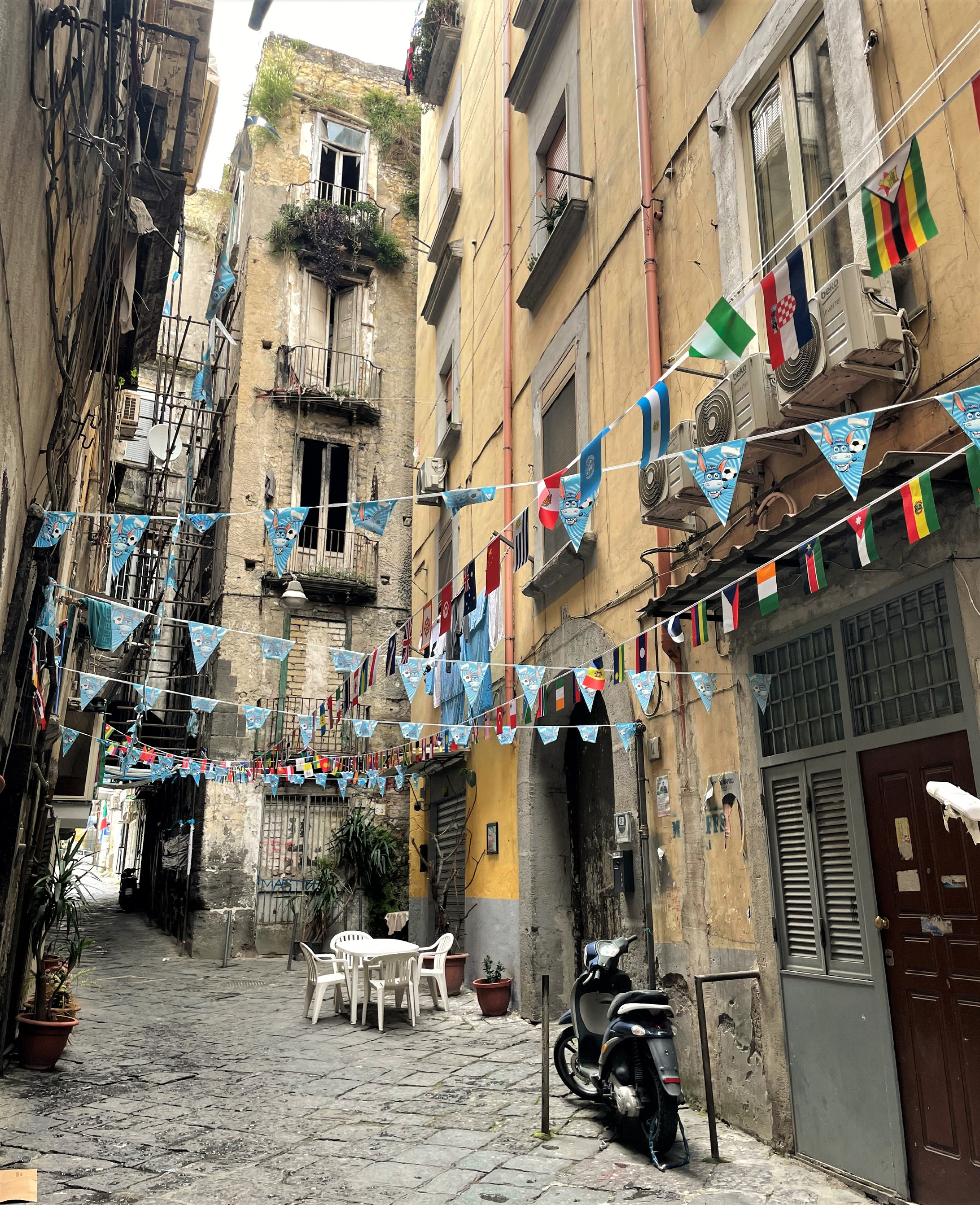
Something to see
- Vesuvius
- Castel dell'Ovo
- Maschio Angioino
- Underground Naples
